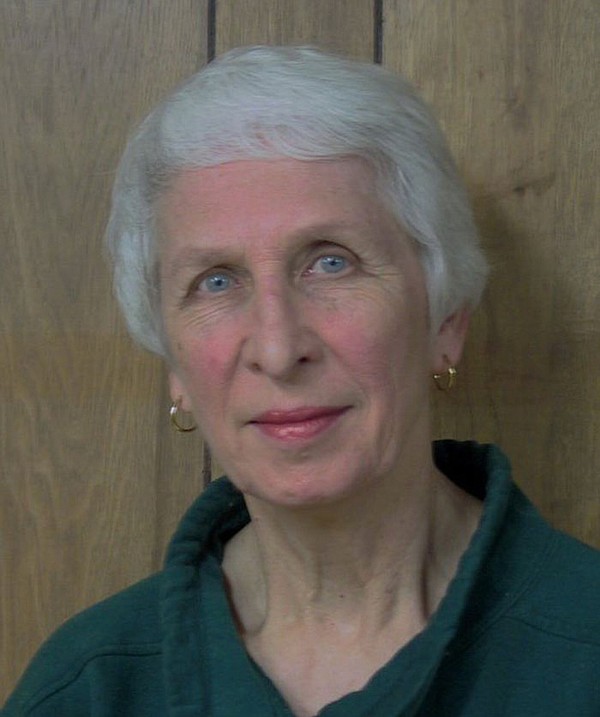Joyce Hale’s parents thought she was learning about flight equipment from the ground when she was in high school, but she had actually taken to the skies.
Her parents were neither angry nor surprised.
“I was always kind of the rebel in the family,” says Hale, 80. “I got into activities and things, not getting in trouble, but just being kind of assertive.”
As a high school freshman in Rogers, Hale was part of the Wing Scouts, an old Girl Scouts program, led by two women who had helped the military transport planes from Alaska.
The organization raised money each year so the girls could take a summer trip.
“We would see different parts of the country and enjoy a more sophisticated life than this little town in Northwest Arkansas provided,” she says.
In her senior year, she had the option of taking the trip or using her allotment of the funds to pay for flying lessons.
“Most teenagers didn’t even have vehicles and I was enjoying all the excitement of learning to fly, but I had to keep it kind of quiet,” she says. “Up at the very end they did have a photo session for the newspaper and then the cat was out of the bag.”
Hale intended to be the first in her family to graduate from college and knew she had to pay her way. Her dad worked in production at a gun factory. Her mother, a housewife, did catering to earn a little money from home.
“I started earning money every way I could figure out, from debeaking chickens in an old hatchery to babysitting in people’s homes and scrubbing floors and whatever it took,” Hale says.
By senior year, she had enough credits to free up part of her school day, and she got a job keeping the books in a drugstore.
She went to the University of Arkansas as a home economics major with a focus on food.
“It didn’t take long for chemistry to really get in my way,” says Hale, who switched to marketing. “I had to shortchange a lot of courses that would have been really good college prep for me in high school so I could earn enough money to go to college.”
Hale leveraged her 4-H experience in competitive demonstration to convince a utility company to hire her with a marketing degree for a job usually reserved for home economists, showing customers how to use their power source. She chose electives in economics, accounting and business management, a benefit later when she and her husband, Jay, started an engineering firm.
She met Jay after he saw her snipping weeds with scissors in the small yard of the home she built at age 18.
“He was the boy next door,” she says. “And he was laughing at me.”
It took about $10,000 — nearly everything she had saved for college — to have the house built on a strip of land behind the home of a professor who paid her for starting dinner and doing light cleaning.
“I had a plan,” she says.
She got her parents to back a loan for the construction, and once it was done, she rented the upstairs to a graduate student and his family and shared the basement with another graduate student.
Hale and her roommate had just an electric skillet for cooking, and they filled pans of water from the bathtub to wash dishes.
“I didn’t have to go too long because that fall I won [a prize in] the Pillsbury Bake-Off contest in New York. I won enough money for the tuition and a stove. I still have my stove, my good luck charm,” she says.
Hale’s love of baking stemmed from a sense of practicality, when her sister was getting married and her mother wanted a nice wedding. Affordability was key, so the cake was Hale’s responsibility.
“I started practicing how to decorate it, and it ended up being something that I enjoyed a great deal,” she says. “It went so well that my mother would do the baking of the cakes while I was at school during the day and I would come home and decorate them so she could sell them.”
In college, Hale taught cake decorating courses through adult education. Later she used her skills to make a cake big enough to serve 550 people at a bicentennial celebration in Pea Ridge.
Hale got involved with various community projects when her daughter, Kelly Syer, was young. She was a 4-H leader, a school volunteer and a substitute teacher.
She got a one-year community development internship with the Rockefeller Foundation, which she used to benefit Pea Ridge, where she lived.
“That was really life-changing,” she says.
She started a chamber of commerce and lobbied for legislation. She helped establish a bicentennial activity that funded a city park. She applied for grants to address various city needs. And she spurred others to carry on when she was ready to slow down.
Hale, who lives in Fayetteville, is proud to have raised an adventurous daughter, as well.
“She has built on all of her experiences to where I think she’s very hard to intimidate or to feel like she isn’t up to the task,” Hale says. “I think that’s an attitude that comes through early, and I think it was kind of the assertiveness that I think I always had when I was her age.”
